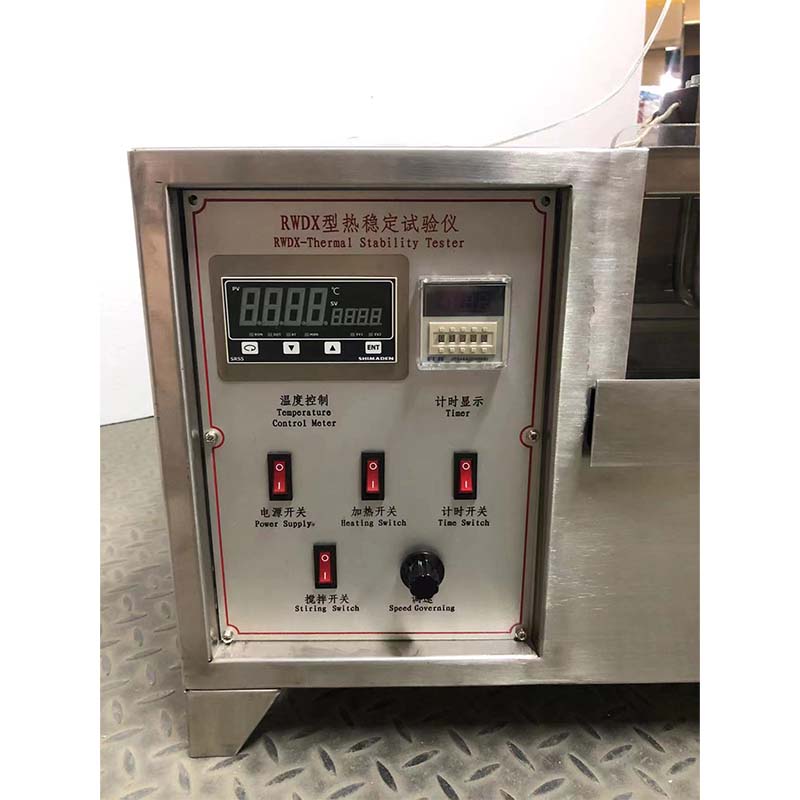tensile testing machine
Understanding Tensile Testing Machines A Key Tool in Material Science
Tensile testing machines, often referred to as universal testing machines (UTMs), play a pivotal role in material science and mechanical engineering. These devices are designed to evaluate the mechanical properties of materials under tension. By subjecting materials to controlled tensile stress until failure, these machines provide critical data that informs engineers and designers about material behavior, strength, ductility, and other essential characteristics.
At the core of tensile testing is the principle that materials will elongate when subjected to a tensile force. The testing machine applies a uniaxial force to a standardized specimen, which is typically shaped in a specific manner and made from a known material. As the force increases, the machine measures the resulting elongation of the specimen, plotting stress against strain to create a stress-strain curve. This curve is invaluable, as it illustrates important metrics like yield strength, ultimate tensile strength, and elongation at fracture.
The construction of a tensile testing machine comprises several key components. It generally includes two grip systems that hold the material specimen, a load cell to measure the amount of force applied, and a data acquisition system to record and analyze the data generated during testing. Modern machines often feature advanced software which enables real-time monitoring and analysis, improving accuracy and efficiency in data collection.
One of the primary applications of tensile testing machines lies in quality control. Manufacturers use these machines to ensure that the materials they source meet specified standards and tolerances. For instance, in the aerospace and automotive industries, the integrity and reliability of materials are critical due to safety considerations. Tensile testing provides confidence that these materials can withstand operational stresses without failure.
tensile testing machine

Moreover, tensile testing is crucial during the development of new materials. Engineers can utilize the data obtained from these tests to optimize material properties for specific applications. By experimenting with different alloys or composite materials, researchers can fine-tune attributes such as tensile strength, fatigue resistance, and corrosion durability. This customized approach to material development can significantly enhance product performance and longevity.
In addition to its applications in manufacturing and material development, tensile testing is also instrumental in research and education. Academic institutions and laboratories often incorporate tensile testing into their curricula and research methodologies. Students gain hands-on experience with these machines, learning not only about material properties but also about the principles of mechanics, testing standards, and data analysis.
The advent of automation and computerization has revolutionized tensile testing machines. Automated systems can conduct multiple tests simultaneously, increasing throughput and reducing human error. Additionally, the integration of advanced materials testing software allows for sophisticated data analysis techniques that can predict material behavior under different loading conditions, thus aiding in more informed decision-making.
In conclusion, tensile testing machines are essential tools that provide critical insight into the properties and performance of materials. Their significance extends across industries, impacting quality control, material innovation, and education. As technology continues to advance, the capabilities and applications of tensile testing machines will likely expand, further enhancing our understanding of materials and their behaviors in real-world applications. For engineers and researchers alike, mastering the use of these machines is vital for advancing material science and ensuring the safety and effectiveness of engineering designs.
-
Why the Conductor Resistance Constant Temperature Measurement Machine Redefines Precision
NewsJun.20,2025
-
Reliable Testing Starts Here: Why the High Insulation Resistance Measuring Instrument Is a Must-Have
NewsJun.20,2025
-
Flexible Cable Flexing Test Equipment: The Precision Standard for Cable Durability and Performance Testing
NewsJun.20,2025
-
Digital Measurement Projector: Precision Visualization for Modern Manufacturing
NewsJun.20,2025
-
Computer Control Electronic Tensile Tester: Precision and Power for the Modern Metal Industry
NewsJun.20,2025
-
Cable Spark Tester: Your Ultimate Insulation Assurance for Wire and Cable Testing
NewsJun.20,2025
 Copyright © 2025 Hebei Fangyuan Instrument & Equipment Co.,Ltd. All Rights Reserved. Sitemap | Privacy Policy
Copyright © 2025 Hebei Fangyuan Instrument & Equipment Co.,Ltd. All Rights Reserved. Sitemap | Privacy Policy
